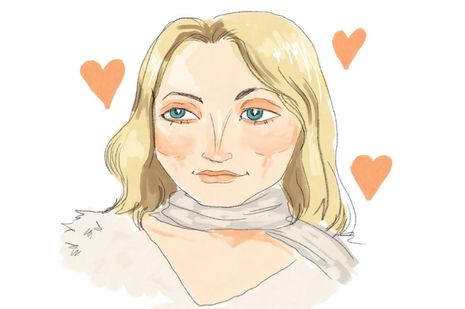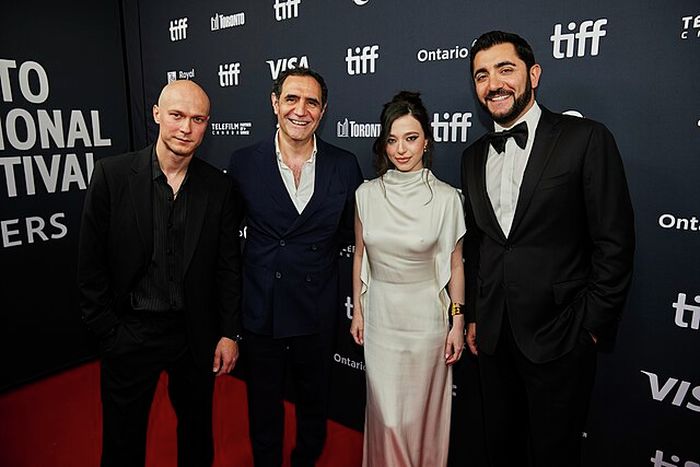How Nancy Meyers’ female gaze keeps The Holiday endlessly fresh
Daisy Simpson gets in the Christmas spirit with praise for The Holiday

In spite of this article’s title, The Holiday, is shockingly not my favourite Christmas film of all time. 2000’s How The Grinch Stole Christmas, with its unhinged central performance from Jim Carey, anti-consumerist messaging and inappropriate humour (‘Hey, honey! Our baby’s here! He looks just like your boss…? ’), will always occupy that spot, for better or for worse. But in recent years, I’ve grown to love the Nancy Meyers rom com more and more, and I’ve concluded that there’s one salient reason why it might have overtaken Elf in my top three (other than Jude Law’s line ‘I sew and I have a cow’).
“the storyline is dominated by so much more than just romance”
The Holiday is a romantic comedy, and yet the storyline is dominated by so much more than just romance. The main premise is fairly simple — English Iris (Kate Winslet) and American Amanda (Cameron Diaz) are both recovering from damaging romances with philandering oafs, and deciding that they need a change of scene, they decide to trade homes over Christmas. Iris moves into Amanda’s dreamlike LA mansion, Amanda into Iris’s picturesque Surrey cottage, and, in acceptably predictable movie fashion, both of them find love again. But Iris’s most moving and engaging relationship in the film is arguably her platonic one with Arthur, an ageing Hollywood screenwriter played to sprightly perfection by Eli Wallach. Similarly, one of Amanda’s sweetest scenes involves her visiting the fairy-princess-style tent of her new paramour Graham’s two small daughters. Hence, romantic love forms a significant part of the film’s narrative structure, but it is by no means the only kind of affection explored onscreen, and the romantic relationships we do see develop naturally and fully — we are provided with more than just longing glances and sporadic hand brushes. Iris’s friendship with mellow movie music composer Miles (Jack Black) gradually begins to deepen into attraction, while Amanda and Graham’s immediate sexual involvement blossoms into mutual respect and love. No film is perfect, and this one isn’t either — there’s minimal diversity, the house-swapping setup is a little improbable, and Graham’s daughters are unrealistically articulate and well-brought-up. But it boasts an impeccable Hans Zimmer soundtrack, and when compared to other culturally beloved Christmas rom coms, it dates surprisingly well when it comes to one element in particular; the way its female characters are written.
“it dates surprisingly well when it comes to one element in particular; the way its female characters are written”
Iris and Amanda’s existences may be blighted by mediocre ex-boyfriends, but the audience has a firm grasp of who they are outside their romantic entanglements. Iris works for a publishing office; Amanda’s occupation causes her to imagine her life as a series of cornily narrated Hollywood trailers. We see them in their work environments and are given relatable scenes of them sobbing uncontrollably in oversized jumpers or yelling along tunelessly to ‘Mr Brightside’. More than that, the film never patronises them or treats them as caricatures. Both are attractive and successful in their respective professional fields, yet the scriptwriters seem to understand that this doesn’t preclude them from feeling insecure and undesirable inside; and neither of them are ever objectified for the sake of cheap chauvinist laughs. When we compare this to Richard Curtis’s Love Actually, which has a glut of unfunny fat jokes targeted at Martine McCutcheon, pans over various actresses’ bare breasts while their male counterparts remain comparably clothed, and doesn’t possess a single example of adequate character writing, there seems to be one obvious explanation for why The Holiday, within the scope of the generally quite weird Christmas movie pantheon, is so unique in earnestly understanding its female leads — its director is female too.
Watching Love Actually in 2024, I was struck by how outlandishly unrealistic much of the women’s dialogue is. The married Alan Rickman character has a cartoonishly seductive young secretary who spreads her legs while murmuring incoherently about secret corners in which to commit dark deeds; the Prime Minister’s female assistant unflinchingly describes Natalie as having ‘a sizeable arse’ and ‘huge thighs’; and four conventionally gorgeous American women inexplicably start planning an orgy with the aggressively charmless Colin Frissell the second they meet him. Some have argued that these elements are deliberately exaggerated for satirical effect, because Natalie obviously isn’t fat and so on but if that was Curtis’s intention, it wasn’t apparent to me. And quite apart from the constant vulgarities regarding sex and body image, Love Actually rewards predatory and downright stalkerish behaviour as though it’s romantic, while The Holiday rightfully punishes its resident fools and cheaters. Perhaps the key message to take away from this disparity is that more women needed to direct Christmas rom coms at that time — it might have dispelled the crass overtone of casual chauvinism that was so disturbingly prevalent in the early 2000s.
 News / Judge Business School advisor resigns over Epstein and Andrew links18 February 2026
News / Judge Business School advisor resigns over Epstein and Andrew links18 February 2026 News / Gov grants £36m to Cambridge supercomputer17 February 2026
News / Gov grants £36m to Cambridge supercomputer17 February 2026 News / Hundreds of Cambridge academics demand vote on fate of vet course20 February 2026
News / Hundreds of Cambridge academics demand vote on fate of vet course20 February 2026 News / CUCA members attend Reform rally in London20 February 2026
News / CUCA members attend Reform rally in London20 February 2026 News / Union speakers condemn ‘hateful’ Katie Hopkins speech14 February 2026
News / Union speakers condemn ‘hateful’ Katie Hopkins speech14 February 2026










